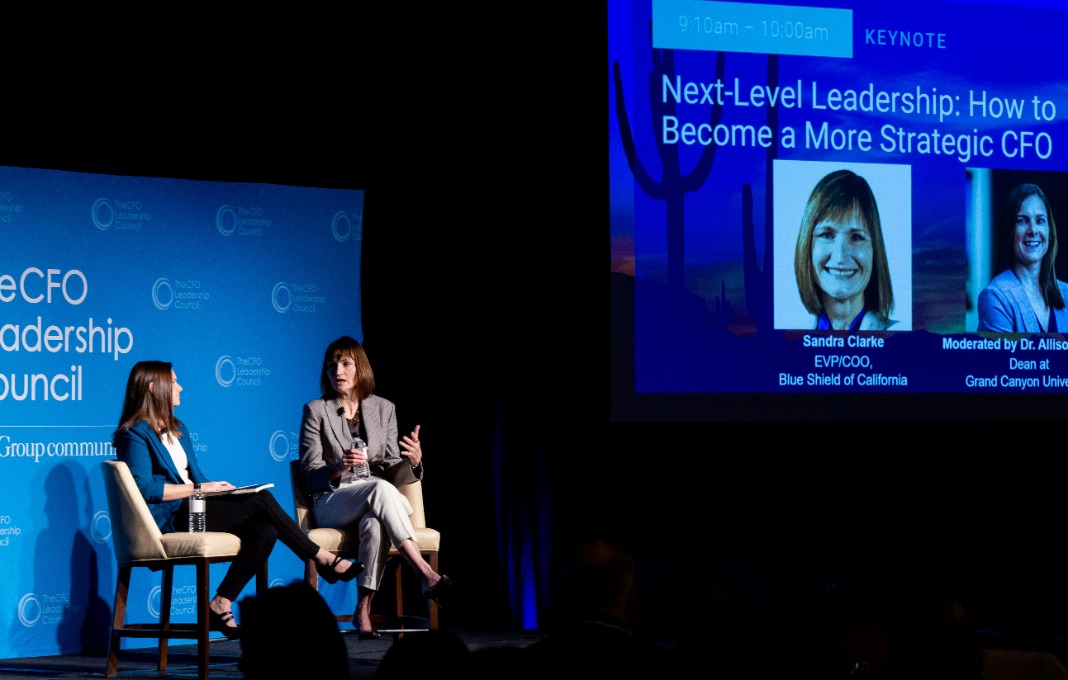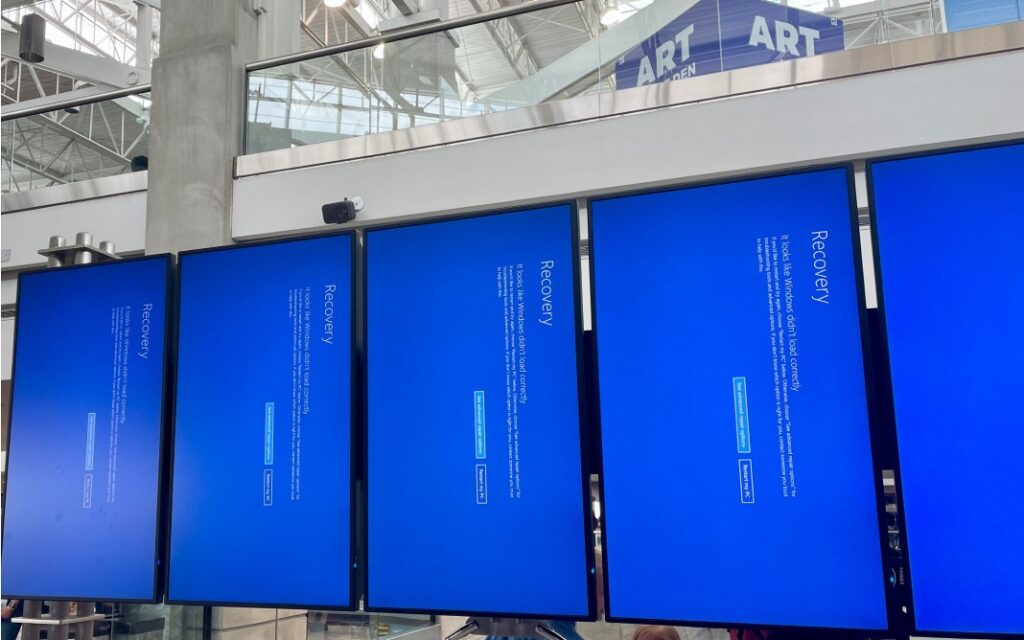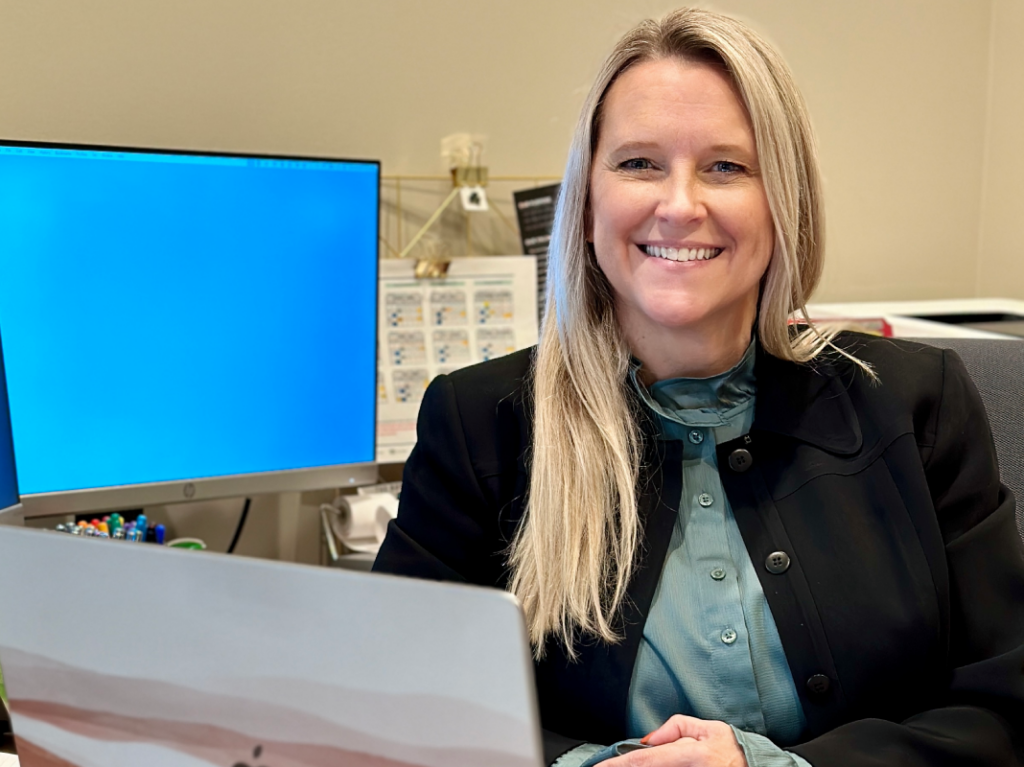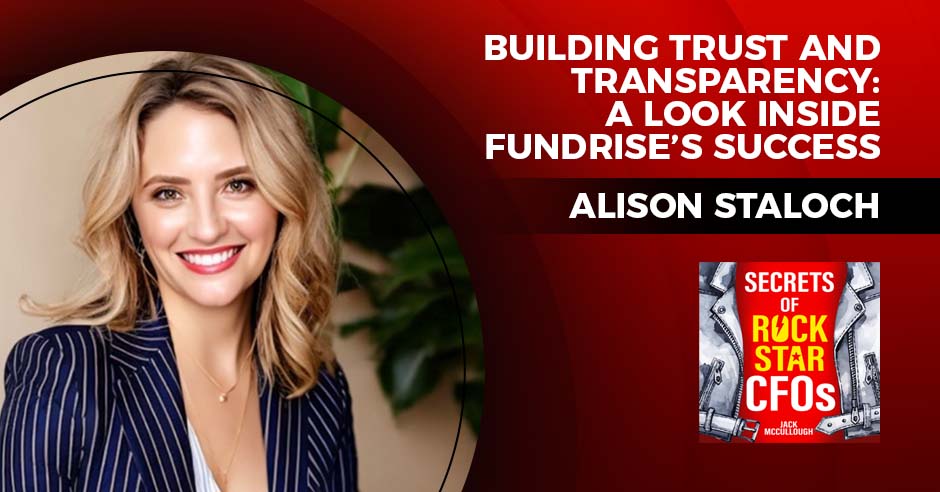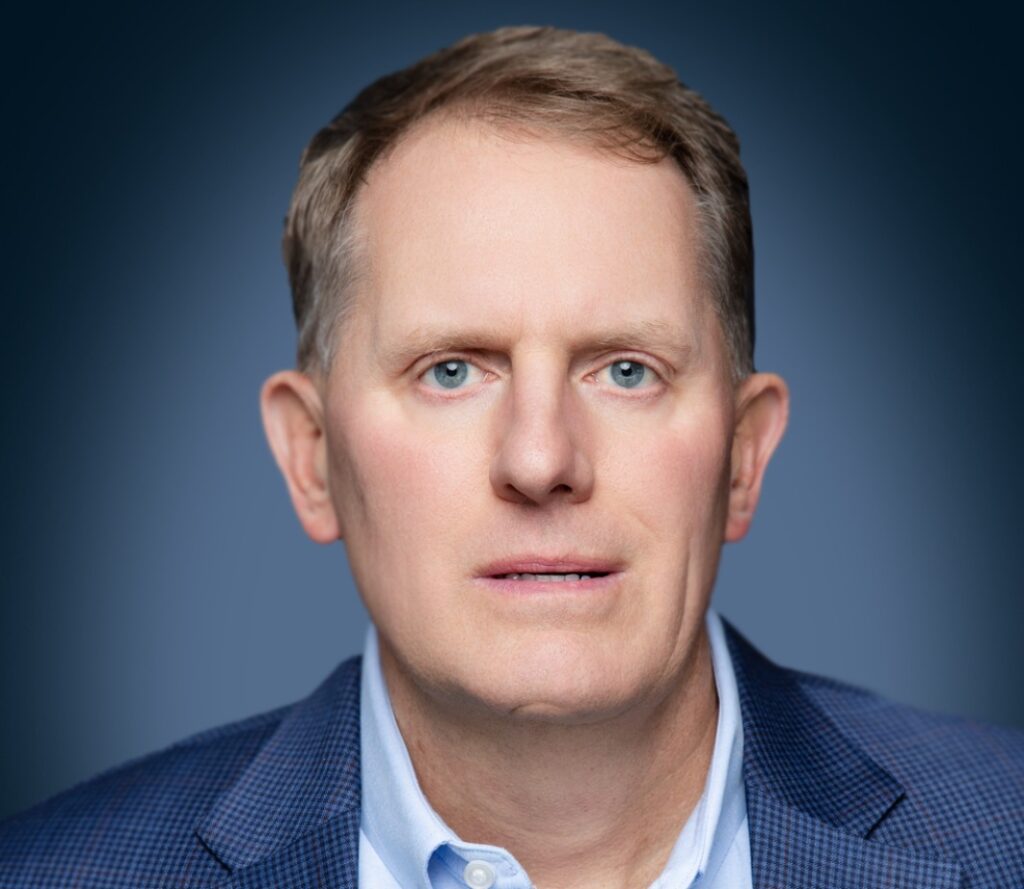Sandra Clarke helps command a huge financially centered organization as executive vice president and chief operating officer of Blue Shield of California, a nonprofit health plan with more than $24 billion in annual revenues, serving 4.8 million members in one of the most highly regulated places in the world.
She checked off some major accomplishments to get there, previously serving as CFO of pharma company Daiichi Sankyo and as CFO of the North and South America commercial group of Philips Healthcare, as well as vice president of finance and controller of Siemens Water Technologies Group.
But Clarke told attendees of the CFO Leadership Council West conference in Phoenix recently that her path to such responsibilities was far from straight, and that her success in finance leadership has depended heavily on the emotional intelligence developed by next-level practices including harnessing curiosity, demonstrating adaptability and being purposeful about building relationships—and about wielding power.
“In some companies, finance can still be seen as people with little green eyeshades, and bean counters,” Clarke said. “Sometimes you have to get more assertive about your seat at the table. Once you can do that and show the value that the finance function brings, that helps with collaboration and breaking down silos.
“You have to be a bit pushy, though. I’ve worked in some organizations where I came in and the leadership before me had been very passive, and it was quite easy to ignore whatever ‘finance’s’ advice was. So I had to go about building those relationships and establishing collaboration differently.”
Clarke shared lessons about her journey to broad leadership via finance, including:
Don’t make things personal. Soon after her first significant promotion at Philips, the business unit was dissolved. “The mistake I made was I took it personally,” she said. “But however personal it feels, business isn’t personal. You have to make the right choices for the company, and that may be hard on people. I try to communicate that to others often when I have to deliver that bad-news message.”
Even in some individual work relationships, Clarke said, you may have to go out of your way to ensure it doesn’t get “personal.” The dynamic can be, “’You don’t have to like me; I don’t like you. But we have to work together.’ You need to figure out something mutually agreeable. You’d much rather figure out a way you can both benefit.”
Be curious. “I’ve always had curiosity about business and learning new things,” Clarke said. “People in my working life have seen that and given me opportunities to stretch with it [and] to move through various industries and into new roles.”
Curiosity in financial careerists is “very important,” she said. Leaders must be “interested in collaborating with various functions in the organization, to truly understand what’s going on from their perspective, and in the operational nature behind the numbers.”
Clarke tries to suss out this characteristic in interviews. “Are they asking about things that matter to them and how they might interact in this role?” she said. “Are they asking about the business? Are they asking about you, in appropriate ways for an interview?”
Value networking. As a self-proclaimed introvert, Clarke said, she “viewed networking like speed-dating: It didn’t appeal to me. But building relationships of varying degrees is really important, and truly global organizations emphasize this. Relationships I build with my peers, including those the next level down, are critical, or you’re not going to get a thing done.”
Indeed, to accomplish a company’s mission, she said, networking is necessary to help build “some degree of trust and a common understanding” about the mission. “You have to establish trust and get to know people,” though you don’t have to “bare your soul about the fight you just had with your teenage son.”
Whack down silos. It’s a common practice in corporate culture reconstruction, but Clarke underscored its importance. “You can’t get things accomplished in silos,” she said. Clarke has been in positions where “peers and I are trying to break down a lot of silos that have built up over the years because the leaders of those functions didn’t play well together. That can create effects that last long after they leave. When you’re not collaborating, those things have a negative long-term impact.”
Keep feeling out “hybrid” work. Based in the highly competitive tech-labor market of Silicon Valley, Blue Shield of California has had to be especially sensitive to the post-Covid demands of workers for remote work. “Flexibility in where they work is an extremely important part of getting that talent,” Clarke said. “They won’t go back into the office four or five days a week.
“But certain types of training and evaluation don’t work as well in a remote environment. And after being 100 percent remote [during the pandemic], relationships and bonds started to fray a little. It’s much easier to be rude to one another or inconsiderate about keeping people included when they’re just on the other end of a screen, or an email, versus being in the office every day.”
So, her company “tries to be very intentional about when people are in the office, such as for team building and training. And the leadership team tries to get together one or two times a month.”
Embrace feminine leadership. Clarke said that, early in her career, she “would have fit” the stereotype of highly qualified female executives who somehow aren’t confident of their own qualifications for advancement. Such trepidations can be reinforced by the “bitchy” stereotype.
“That’s where having sponsors is important,” she said. Often, executive sponsors who can be helpful to women’s careers are men, Clarke said. In any event, “It gives you an opportunity to build credibility because you’ve got that support. Also, sometimes even enlist your colleagues and say, ‘I feel I’m not getting heard’ in a particular type of meeting or by a particular individual. ‘Are you seeing it the same way? Help me to get into the conversation, if that’s happening.’”
Get mentors. Higher-level managers and executives who are willing to serve in that role can be crucial for advancement as well as for “protection” on the way up, she said. But don’t look immediately above, and “having your boss as your mentor isn’t a good idea.”
“The best mentors have been people not in my chain” of command, Clarke said. “Often, it’s been someone who’s close enough that they are familiar with individuals but have a different viewpoint on the situation. They can be really helpful at giving you another perspective on things. The most effective sponsors have been within my function and often I’ve had some who were peers of my boss. Often they are speaking for you in meetings or situations where you aren’t present because of the level they’re at. When they’ve been in the same function [as you], their recommendation or support has carried a lot of weight.”
Put AI in context. Seen as a huge threat to humans operating in functions including finance and law, the advance of generative AI is similar in that regard to the “outsourcing” surge of a generation ago in which organizations sent back-office chores, in particular, to outside providers and reduced their own workforces.
“It was outsourcing of what was transactional and rules-based,” Clarke said. “Now, with AI, people are outsourcing functions to computer intelligence. [But] you can’t trust AI is right just because it’s coming from a computer. Validation and audit skills will still be important, and critical-thinking skills will still be important.”


